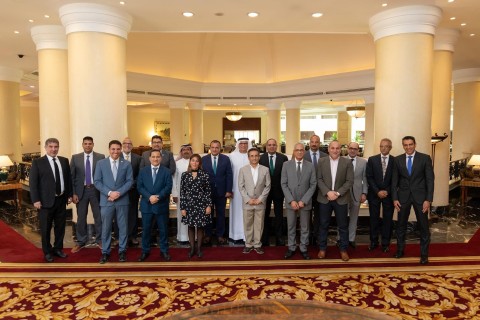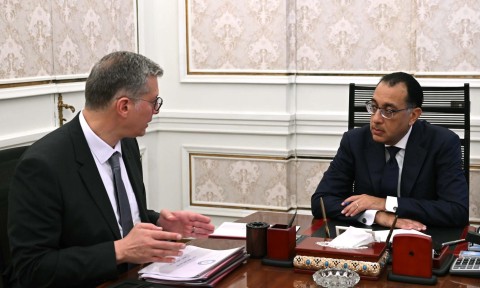Over the past few years, Egypt has taken proactive constant steps to become a hub for trading and exporting energy. In 2016, a high committee was formed to implement this strategy as a part of Egypt’s vision 2030 for sustainable development. Egypt’s plan to become an energy hub will secure the domestic needs of energy, support economic development, provide more foreign currency and perfectly exploit Egyptian infrastructure. In addition, this strategy will provide more opportunities for investments.
This strategy has become more credible after the success stories that were achieved by the energy sector, specifically the oil and gas sector. However, this strategy even can gain more momentum with great potentials and achievements in the renewable energy sector.
These potentials for renewable energy, and the exerted efforts in this regard can fit Egypt well to be an actual energy hub.
Natural Gifts
Egypt has abundant natural resources such as sunny weather and high wind speed; making it a prime location for generating renewable energy. A report issued by International Renewable Energy Agency (IRENA) stated that Egypt has a chain of hydropower stations at a capacity of 2,800 megawatts annually. Egypt produced 7.2% of electricity from hydropower energy in 2015/2016 after representing 50% in the 1950s and 1960s, due to the increase of the thermal energy stations.
In addition, Egypt has potentials for wind energy, especially in the Gulf of Suez, which is considered one of the best areas in the world for generating this kind of clean energy. According to the report, the location’s high speed and stable wind that reaches 8-10 meters per second (m/s) in addition to having large inhabited and desert areas helped it to perfect spot for wind energy generation. IRENA also referred to new promising regions that have been discovered in the East and West of the Nile in Beni Suef, Al-Minya and Al- Kharga that have a wind speed of 5-8 m/s.
What’s more, according to the IRENA report, Egypt has suitable solar radiation at an average of 2,900 to 3,200 hours annually, enabling it to be one of the best countries to exploit solar energy either in generating electricity or in thermal heating applications. Moreover, Egypt possess biomass from animal dungs and agricultural wastes estimated at 35 million tons per year, 60% of which is used for energy equals to 5 million tons of oil equivalent per year according to the German Corporation of International Cooperation (GIZ).
Readiness for Being Energy Hub
During the past two decades, Egypt established important projects for renewable energy after recognizing the need for a sustainable energy mix to address the increase of demand and provide environment-friendly energy. The government adopted the 2030 Integrated Sustainable Energy Strategy, targeting production of 20% electricity from renewable resources by FY 2021/22, 55% by FY 2034/35 and 61% by 2040. In addition, Egypt adopted a new law in 2015 to facilitate the active contribution of major investors related to tariffs, licensing, and dispute resolution. This allowed the increase of direct investments from major multinational companies including Siemens, Total Eren, Schneider Electric, Engie and others.
The Government has developed many hydropower stations since 2015, expected to be finished by 2022 at a capacity of 2,400 megawatts. Moreover, the Government has established many wind farms since 1993, the most important of which is the Zaafarana wind farm, the second biggest wind farm in Africa, with a cost of EUR 110 million through loans from Denmark, Spain, Japan and Germany. The electricity produced from wind energy reached 2,085 gigawatt hours in FY 2015/2016. Egypt tends to install four stations for wind energy with a combined capacity of 2,610 megawatts by 2023 in cooperation with IRENA. According to IRENA report 2018, Egypt has planned to develop a lot of projects until 2023 with a total capacity of 3,350 megawatts and three projects are under construction at capacity of 660 megawatts in addition to a project subject to bidding phase, which is expected to produce 600 megawatts.
Regarding solar energy, Egypt developed one of the biggest projects in the world. This is known as the Benban Solar Park, built in cooperation with 30 companies with investments of $2 billion producing 1,465 megawatts, according to a report issued by the embassy of Egypt in Sweden. The country also targets to complete several solar projects with total capacity of 3,211 megawatts by 2023.
Bright Future
All these reforms pushed Egypt to the 77th position in the Getting Electricity sub-index 2020 of the World’s Bank Doing Business, from the 144th in 2016. In addition, Egypt is currently developing a strategy for the hydrogen industry. These significant developments in the energy sector allowed Egypt to increase its production of electricity and consolidate its position as an important energy hup.








